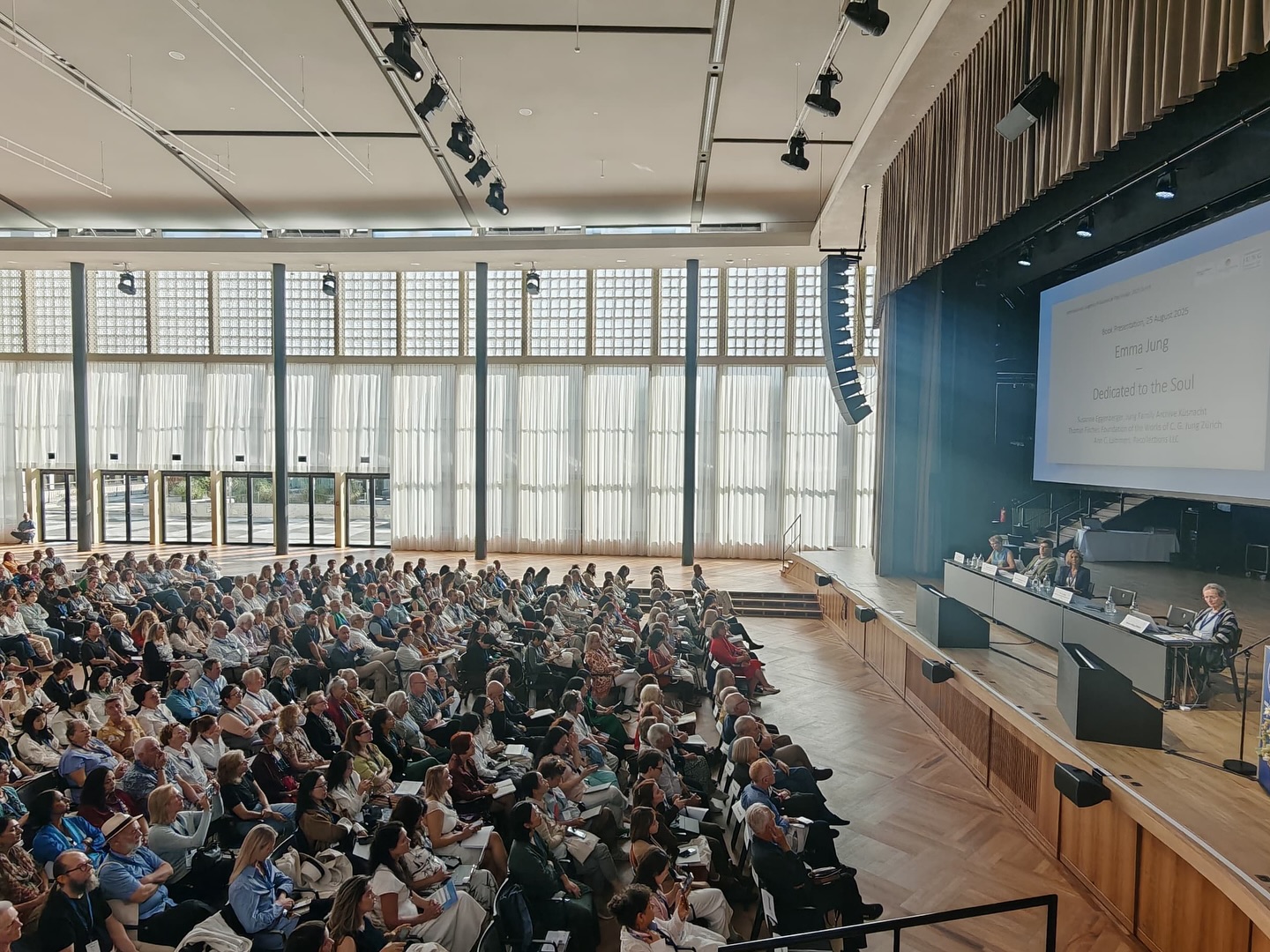The 23rd IAAP Congress in Zurich was a resounding success, marked by a spirit of unity, vitality, and renewal. The significance of meeting in Jung’s home city was felt not with intensity but with ease, as if the community were gathering in its natural home. Perfect late-summer weather and an ideally located venue created a welcoming atmosphere, and although the rooms were sometimes crowded, this only reflected the remarkable turnout of some 1,800 colleagues. At a time when the wider world feels mired in conflict and division, the Congress could easily have been overshadowed by tension. Instead, thanks to careful stewardship and thoughtful structuring, discussions of difficult issues remained constructive, and the overall tone of the week was electric, light, and full of collegial warmth. The sense of collective achievement was nowhere more visible than on the final day, when over 60 new Individual Members were welcomed on stage—an extraordinary milestone for the IAAP as it continues to expand into new regions, extend training opportunities, and diversify its global membership.
Plenary Sessions
The official theme of this year’s Congress was experiences of the non-understandable. Each plenary presentation approached this from a different angle—whether through the body, childhood, psychedelics, cultural encounter, or even digital worlds—bringing attention to what is non-rational, opaque, or awe-inspiring.
Yet, as the week unfolded, another motif surfaced with equal clarity. First named explicitly in Joe Cambray’s Monday plenary, it became the shadow theme of the Congress: the re-enchantment of the world. Taken together, the plenaries invited us not only to face what we cannot fully grasp, but also to rediscover the vitality, wonder, and mystery at the heart of analysis itself.
Monday began with a beautiful presentation of Dedicated to the Soul, a new volume of Emma Jung’s writings and drawings. The panel of Ann Lammers, Thomas Fischer, Susanne Eggenberger-Jung, and Carl C. Jung brought Emma vividly to life, not only as Jung’s companion but as a thinker and creator in her own right. Later on Monday, Joe Cambray traced a path from individuation and synchronicity to the “psychoid imagination.” He suggested that Jung’s ideas, read today alongside complexity theory and ecology, invite us to see individuation as both personal and planetary. In the psychoid imagination—where psyche and matter meet—Cambray sees the possibility of re-enchantment: a renewal of meaning that reconnects us to the living world as well as to the depths of psyche.
Tuesday we turned to Marian Dunlea’s BodyDreaming, an approach that brings the body into the centre of analysis. She showed how trauma and shadow lodge in the body, and how listening to its wisdom opens new pathways to healing. Her evocation of Newgrange as a metaphor for alignment with the Self gave the talk a luminous grounding.
Wednesday highlighted child analysis. Toshio Kawai revisited his early work with a boy on the autism spectrum, reflecting on how incomprehensible play can reveal deep struggles with life and death. Audrey Punnett, meanwhile, spoke about otherness in her work with a social isolated immigrant boy in California, showing how migration, family, and history shape the analytic field.
Thursday brought two very different plenaries. Andrew Samuels offered a candid late-career reflection on what has changed and what has not in our professional world, urging us toward openness and plurality while honoring the “New Ancestors.” Leslie Stein then explored psychedelics in analysis, balancing stories of extraordinary healing with caution about their risks.
Friday closed with two striking papers: Kan Chen and Xiao You explored how adolescents find myth and spirituality in anime and online games, while Stefano Carta urged us to take seriously the cosmologies of spirits and ancestors as living truths.
Across the week, these plenaries reminded us that analysis is at its most alive when it welcomes the non-understandable, and when it allows psyche and world to be re-enchanted.
With thanks to Zurich
The Congress was managed with grace and efficiency by our hosts, Andreas Michel, Chair of the Program Committee, and Misser Berg, President of the IAAP, whose leadership ensured that the entire week ran smoothly.

